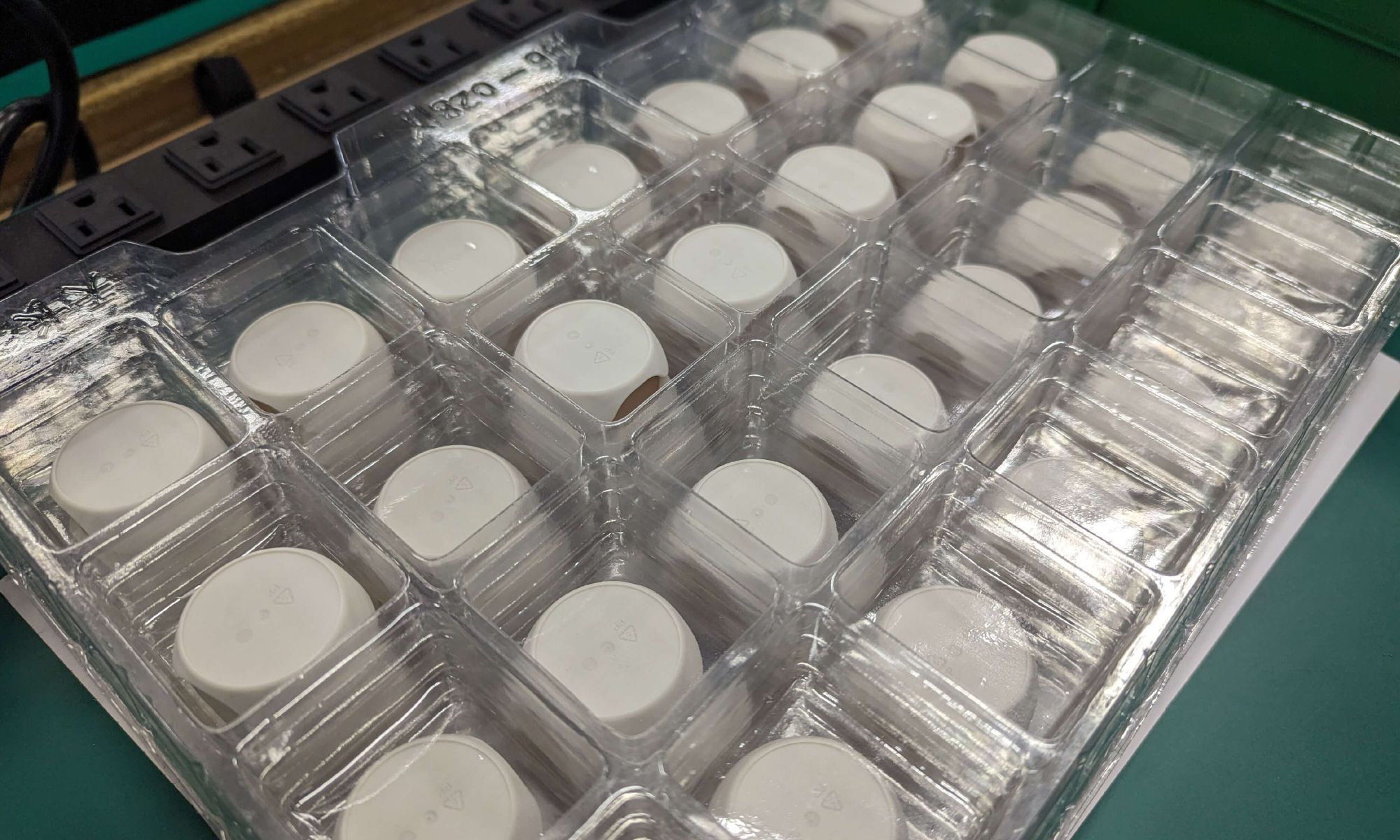In the world of product development and manufacturing, ensuring compliance with Federal Communications Commission (FCC) standards is not just a best practice – it’s a legal requirement. The FCC mandates specific tests, primarily Electromagnetic Interference (EMI) and Electromagnetic Compatibility (EMC), to guarantee that electronic devices function safely without causing or succumbing to electronic interference. These tests are critical in our increasingly connected world, where electronic noise and interference can significantly impact both device performance and user safety. FCC testing is necessary for selling or manufacturing an electronic device in the United States, and the Hatch team is here to walk you through the process with a hands-on approach.
The Crucial First Step: Pre-Scan Testing
The journey towards FCC compliance begins with Pre-Scan Testing; an essential diagnostic step that helps identify potential EMI/EMC issues at an early stage. At Hatch, we pride ourselves on our ability to perform these pre-scans in-house on a wide range of consumer products, effectively setting the stage for successful compliance. For products that require deeper analysis, our network of institutional partnerships enables us to delve further. We look at components, functions, and circuits to see how they react to different tests that are run. For example, RF emissions is one of the most common tests run for FCC testing. It’s not enough to only watch the frequency levels; it is critical for us to check the energy levels in parallel to ensure that both are running at safe levels.

Refinement: The Heart of Compliance
Following the initial Pre-Scan Testing, products enter the refinement phase. This crucial stage involves detailed electrical and mechanical adjustments, tailored to mitigate any identified EMI/EMC concerns. Our team at Hatch approaches this phase with a blend of technical expertise and creative problem-solving, ensuring that every product not only meets but exceeds FCC standards.
The Pinnacle of Testing: FCC Certification
The culmination of this rigorous process is the FCC testing itself, conducted in a certified lab. Hatch’s team members are actively involved on-site, facilitating the process and providing real-time troubleshooting. This hands-on approach allows us to address and resolve any issues that may arise during testing, ensuring a smooth path to compliance.
Beyond Testing: Final Tweaks and Mass Manufacturing
Passing the FCC test is a significant milestone, but the work doesn’t stop there. Any necessary design modifications or minor tweaks are seamlessly incorporated into the product design before it moves into New Product Introduction and Mass Manufacturing. This holistic approach ensures that the final product is not just compliant but also optimally designed for its intended market.
Power Source and Usage Considerations
In FCC testing, the nuances of power source (battery-powered versus wall-powered) and intended use (residential versus commercial) play pivotal roles. These factors influence the testing parameters and standards that a product must meet, underscoring the need for a tailored approach to each product’s unique characteristics.
The Challenge of FCC Testing: A Symphony of Complexities
Achieving FCC compliance is often likened to navigating a labyrinth of technical intricacies - it's a complex and sometimes daunting task. We’re dealing with the unpredictability of electronic noise, which can be particularly challenging for unique, innovative, or high-powered devices. For example, the Hatch team worked with a device that was generating internal system noise from the power supply, which wasn’t being filtered properly. The component at issue was off-the-shelf, meaning that the component itself could not be modified, so a creative software adjustment was required to lower the noise level.
In the realm of FCC testing, solving one problem can inadvertently create another. This interconnected nature of electronic issues means that a comprehensive understanding and strategic approach are essential. This is where Hatch’s expertise becomes invaluable. With a team of seasoned engineers and specialists, we not only anticipate potential pitfalls but also construct effective solutions that ensure a smooth and successful compliance process.

Why Partnering with Hatch Makes the Difference
FCC testing is a journey filled with technical challenges and regulatory hurdles. At Hatch Product Development & Contract Manufacturing, we understand the complexities involved and bring our extensive experience to bear on every project. Ideally, design work for FCC testing is considered at the beginning of a product’s development, which gives you a better chance of meeting the standards. If your product has already been designed without FCC testing considerations, FCC testing is possible, but may require adjustments to the design and additional time for the pre-scan analysis, product refinement, and testing before your product is deemed compliant.
FCC compliance is a great achievement and necessary for market success. In the intricate dance of FCC compliance, having a partner like Hatch is not just an advantage – it’s a necessity.


